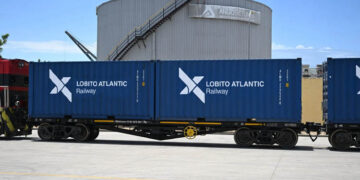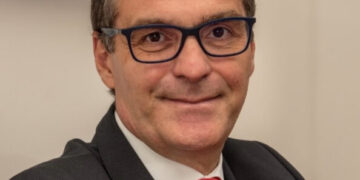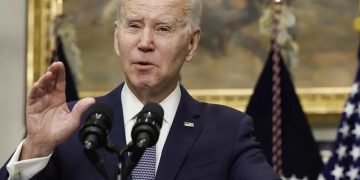The 16th USA-Africa Business Summit concludes this Thursday in the city of Dallas, Texas, after three days of debates around the challenges, business perspectives, and investment opportunities on the African continent.
According to data from the event organizers, which included the participation of Angolan President João Lourenço, the initiative gathered more than 1,500 business and governmental leaders, including five African heads of government and over 16 delegations.
Since Tuesday, as reported by the summit’s promoters, over 15 US government officials participated in thematic panels, forums, and high-level dialogues, enhancing the dialogue and fostering stronger ties between the nations.
During the first two days of the event (Tuesday and Wednesday), the agenda was marked by testimonials and case studies from African presidents, who discussed ongoing projects in their respective countries across various sectors.
On Wednesday, participants reflected on themes such as women’s economic empowerment, regional and global supply chains, the reality of the African diaspora, sustainable USA-Africa partnership, creative industries, and health system resilience, with the participation of Angolan Health Minister Sílvia Lutucuta.
The agenda included a thematic panel on investment in Mozambique and a roundtable on investment in Namibia, as well as a plenary on Women’s Economic Empowerment: A Catalyst for Impactful Business and Investment between the USA and Africa.
This topic served to deepen strategies to collaborate on Women’s Economic Empowerment initiatives in the public and private sectors, with specific emphasis on promoting partnerships in the context of US-Africa trade and investment.
The plenary explored ways to create conducive environments for female entrepreneurs and professionals, leveraging the strengths of the public and private sectors collectively to drive sustainable economic growth, innovation, and inclusion.
Another panel of the day was on the topic Lighting the Path Forward: Reducing Energy Access to the Last Mile in Africa, which explored innovative solutions and collaboration opportunities to accelerate energy access in Africa.
It also discussed cutting-edge technologies, financing models, and community engagement strategies that can bridge the energy gap and unlock a better future.
Another panel related to the theme Cities – Delivering Now for and for the People of the Future, which brought together municipal managers, mayors, and governors from the USA and Africa with NGOs and private sector companies to discuss the challenges and opportunities for democracy-oriented governance.
Similarly, participants discussed the panel Expanding Agribusiness Ventures: Opportunities and Challenges to Elevate African Agriculture to the Next Level, during which they conversed about what would be necessary to ensure greater involvement of the American private sector in African agribusiness.
The issue of Special Economic Zones: Connecting Africa to Regional and Global Supply Chains also garnered attention from event guests, in a panel that brought together SEZ managers, government officials, and investors.
They spoke about the best way to develop their potential and boost broader economic growth, at a time when Africa is now the fastest-growing continent in the adoption of SEZs, with over 240 SEZs in 47 of the 54 countries.
For this Thursday, the agenda anticipates, among other activities, a plenary session on Strengthening the Health Regulatory System, which will bring together leaders from the public and private sectors to explore opportunities to create an investment-friendly environment.
Another panel will be Turbocharging SMEs: Strategies to Accelerate Trade and Investment USA-Africa, a topic that explores the vital role of Small and Medium Enterprises as engines of economic growth and innovation in the USA and Africa.
This panel will delve into viable strategies aimed at unlocking the full potential of SMEs and enhancing their participation in bilateral trade and investment.
Similarly, panels are expected on Cancer Detection and Treatment: Importance of Diagnosis and Access to Treatment, Insurance Sector in Africa: Mitigating Business Risk, From Turmoil to Millionaire Enterprises: The Story of African Entrepreneurs, Data-Driven: Unlocking Africa’s Economic Potential, Real-World Suggestions on What Works under AGOA and How to Improve It, and Partnership to Accelerate Africa’s Industrialization.
The closing session will highlight the combination of policies, financing, and technologies needed to accelerate green industrialization in Africa, expected to feature, among others, Reta Jo Lewis, Executive of the Export-Import Bank of the United States, and Florizelle Liser, Corporate Council for Africa.



















![[Kenya] Digital credit provider Tala disbursed Sh240 billion in loans in eight years 19 [Kenya] Digital credit provider Tala disbursed Sh240 billion in loans in eight years](https://theafricanbusiness.com/wp-content/uploads/2023/02/TALA-APP-360x180.jpg)













